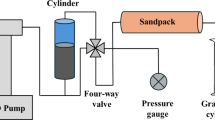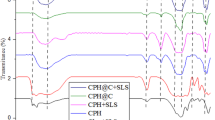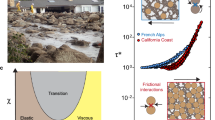Abstract
PHOSPHATES, especially the sodium hexametaphosphate, are now widely applied for the treatment of drilling muds used in the rotary drilling of oil-wells1. Some papers dealing from the colloid chemical point of view with the action of phosphates on clay suspensions have recently been published2. A majority of investigators appears to have expressed the results of their measurements in terms of apparent viscosity and to have paid insufficient attention to the progress of the reaction. We have tried in our work to overcome these objections, and have obtained some results which seem to need further explanation. Results of detailed investigations will be published elsewhere ; but the preliminary observations appear to be sufficiently interesting to be communicated here.
This is a preview of subscription content, access via your institution
Access options
Subscribe to this journal
Receive 51 print issues and online access
$199.00 per year
only $3.90 per issue
Buy this article
- Purchase on SpringerLink
- Instant access to the full article PDF.
USD 39.95
Prices may be subject to local taxes which are calculated during checkout
Similar content being viewed by others
References
Evans, P., and Reid, A., Trans. Min. Geol. Inst. India, 32, 3 (Dec. 1936).
Loomis, A. G., Ford, T. F., and Fidiam, J. F., Petroleum Tech., T.P., 120 (May 1940). Garrison, A. D., and ten Brink, K. C., Petroleum Tech., T.P., 1124 (Nov. 1939).
Mukherjee, J. N., and Sen Gupta, N. C., Indian J. Phys., 16, 66 (1942).
Author information
Authors and Affiliations
Rights and permissions
About this article
Cite this article
REID, A., SEN GUPTA, N. Effect of Sodium Hexametaphosphate on the Yield Value and Viscosity of a Hydrogen Bentonite Suspension. Nature 159, 336–337 (1947). https://doi.org/10.1038/159336a0
Issue date:
DOI: https://doi.org/10.1038/159336a0



